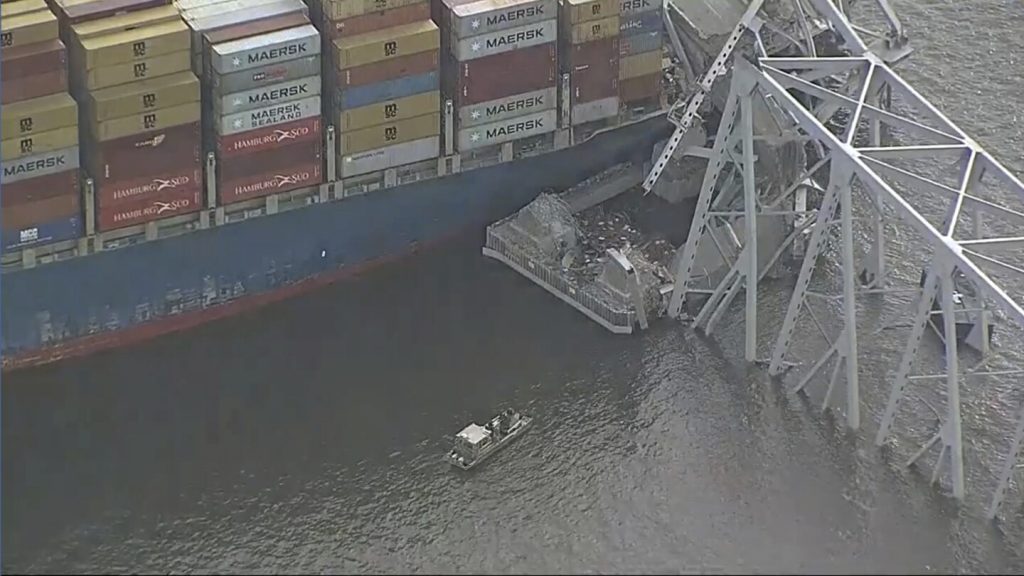The collapse of Baltimore’s Francis Scott Key Bridge is causing major disruptions to shipping and trucking operations in one of the busiest ports on the East Coast. The incident occurred when the container ship Dali struck the bridge and caused it to collapse, suspending ship traffic in and out of the Port of Baltimore indefinitely. This has forced vessels and cargo to be rerouted to other ports, leading to potential congestion and delays for importers. Six people who were part of a crew working on the bridge were missing and presumed dead after the collapse.
The collapse of the Key Bridge is expected to have significant and long-lasting impacts on the region, according to the American Trucking Associations. The bridge is a critical component of the nation’s infrastructure, with 1.3 million trucks crossing it every year. The loss of the bridge will force trucks carrying hazardous materials to take longer detours around Baltimore, leading to delays and increased fuel costs. Trucking companies like Lee Transport, which handle hazardous materials, anticipate significant time increases in transporting goods to their destinations.
The incident comes at a time when global shipping has been facing disruptions due to attacks on vessels in the Red Sea by Houthi rebels. These attacks have forced ships to take longer routes and increased freight rates from Asia to the U.S. Baltimore’s port has become important for retailers and manufacturers diversifying their supply networks. Supply chain experts are currently working to reroute shipping containers that were headed to the Port of Baltimore, anticipating delays and potential shortages. The use of trucks as an alternative to shipping goods is also expected to cause traffic backups on U.S. thoroughfares.
The collapse of the Key Bridge is likely to have an outsize impact on the regional economy around Baltimore and businesses that rely on shipments of steel and cars through the port. The Domino sugar refinery located at the port expects no short-term impact on its operations, as it has sufficient raw sugar supplies on hand. However, businesses in the construction and shipbuilding industries may experience delays in their projects due to the disruption in shipping operations. The Port of Baltimore is a key port for handling vehicles, and a lengthy closure could disrupt the supply of new vehicles. While disruptions are expected, experts believe that shipping companies are equipped to handle detours to other ports.
Despite the significant impact on regional businesses and shipping operations, experts believe that the bridge collapse is unlikely to have a major impact on global trade. Baltimore is not a major port for container vessels, and the timing of the incident during a slow season for ocean freight shipments will help minimize disruptions. While short-term delays are expected, shipping companies have shown agility in handling detours in the past due to conflicts along other shipping routes. Other ports along the East Coast are prepared to receive diverted shipments, turning the challenge for Baltimore into an opportunity for ports up and down the coast.


